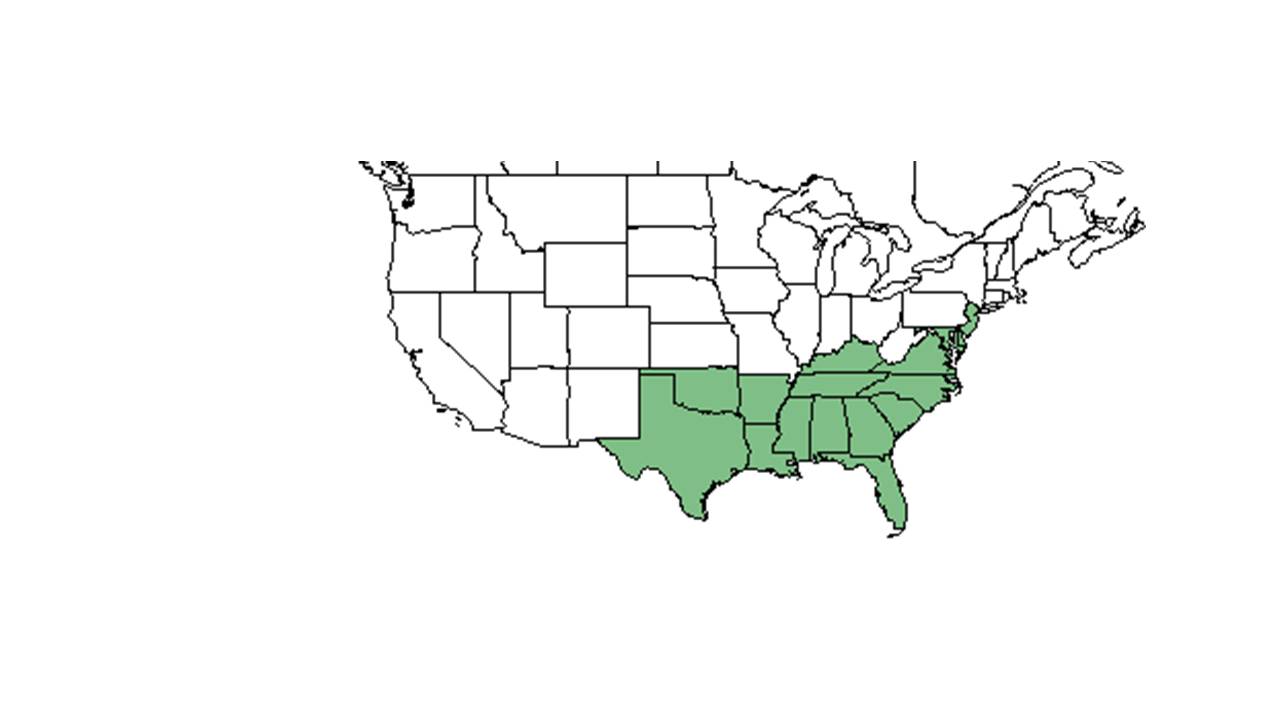Difference between revisions of "Gymnopogon brevifolius"
(Undo revision 5145 by Dante DiSabatino (talk)) |
|||
| Line 24: | Line 24: | ||
==Ecology== | ==Ecology== | ||
===Habitat=== <!--Natural communities, human disturbed habitats, topography, hydrology, soils, light, fire regime requirements for removal of competition, etc.--> | ===Habitat=== <!--Natural communities, human disturbed habitats, topography, hydrology, soils, light, fire regime requirements for removal of competition, etc.--> | ||
| + | It lives in sandy soils.<ref name="Flint 1887">Flint, C. L. (1887). Grasses and forage plants: a practical treatise comprising their natural history; comparative nutritive value; methods of cultivating, cutting, and curing. Boston, MA, Lee and Shepard Publishers.</ref> | ||
This species is found on longleaf pine sandhills, open wiregrass-pinewoods savannas, mesic pine flatwoods, palmetto-wiregrass-longleaf pine woodlands, pine barrens, and mixed woodlands (FSU Herbarium). They occur on dry and moist sandy loam in these environments as well as human disturbed habitats such as along back roads (FSU Herbarium). | This species is found on longleaf pine sandhills, open wiregrass-pinewoods savannas, mesic pine flatwoods, palmetto-wiregrass-longleaf pine woodlands, pine barrens, and mixed woodlands (FSU Herbarium). They occur on dry and moist sandy loam in these environments as well as human disturbed habitats such as along back roads (FSU Herbarium). | ||
Revision as of 19:54, 13 July 2015
| Gymnopogon brevifolius | |
|---|---|

| |
| Scientific classification | |
| Kingdom: | Plantae |
| Division: | Magnoliophyta - Flowering plants |
| Class: | Liliopsida – Monocotyledons |
| Order: | Cyperales |
| Family: | Poaceae ⁄ Gramineae |
| Genus: | Gymnopogon |
| Species: | G. brevifolius |
| Binomial name | |
| Gymnopogon brevifolius Trin. | |

| |
| Natural range of Gymnopogon brevifolius from USDA NRCS Plants Database. | |
Contents
Description
Common Name: shortleaf skeletongrass
Distribution
Ecology
Habitat
It lives in sandy soils.[1]
This species is found on longleaf pine sandhills, open wiregrass-pinewoods savannas, mesic pine flatwoods, palmetto-wiregrass-longleaf pine woodlands, pine barrens, and mixed woodlands (FSU Herbarium). They occur on dry and moist sandy loam in these environments as well as human disturbed habitats such as along back roads (FSU Herbarium).
Phenology
It flowers in August.[1]
Seed dispersal
Seed bank and germination
Fire ecology
Pollination
Use by animals
Comprised deer diets more in the summer than in the winter.[2]
Diseases and parasites
Conservation and Management
Cultivation and restoration
Photo Gallery
References and notes
- ↑ 1.0 1.1 Flint, C. L. (1887). Grasses and forage plants: a practical treatise comprising their natural history; comparative nutritive value; methods of cultivating, cutting, and curing. Boston, MA, Lee and Shepard Publishers.
- ↑ Thill, R. E. (1983). Deer and cattle forage selection on Louisiana pine-hardwood sites. New Orleans, LA, USDA Forest Service.